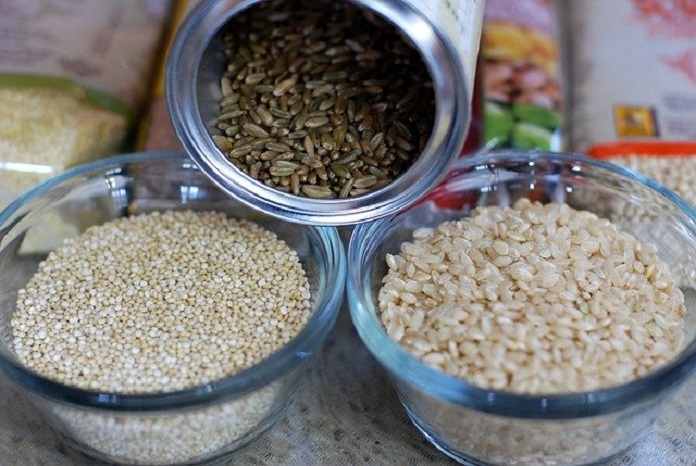Diabetes currently affects up to 422 million people worldwide, especially in low- and middle-income countries, but its prevalence has risen drastically over the last thirty years.
Diets that are rich in whole grains are especially useful in controlling diabetes, aiding weight loss, increasing metabolism, lowering blood sugar, and reducing the risk of heart disease, obesity, and cancer. Studies have shown that foods such as whole grain breakfast cereal and brown rice can reduce the risk of type 2 diabetes. However, researchers wanted to determine if other whole grain foods like oatmeal, dark bread, popcorn, wheat germ, and added bran can also provide the same benefit.
Researchers from the Department of Medicine, Brigham and Women’s Hospital and Harvard Medical School performed a study examining the link between whole grains and diabetes. It was published in the journal, BMJ.
The researchers used data from three studies of healthcare workers: the Nurses’ Health Study, the Nurses’ Health Study II, and the Health Professionals Follow-up Study. These three studies used questionnaires at the beginning of the study to determine participants’ medical history, lifestyle, and diet. Participants that had been diagnosed with type 2 diabetes, heart disease, or cancer were excluded. Participants updated their questionnaires every four years, including whether they had been diagnosed with type 2 diabetes or other diseases. The studies consisted of 194,784 participants, 18.8% of which were men.
The questionnaires asked participants to select how often and how much they ate food listed, such as cold breakfast cereals, dark bread, popcorn, oatmeal, bran, wheat germ, and brown rice. Specific brands were also listed so participants could identify which of these foods they ate. The data was selected to determine the participants’ intake of whole grains from all the foods they ate that contained grains.
If a participant was diagnosed with type 2 diabetes during the study, an additional questionnaire was completed, and additional health data was collected. The studies covered an average time period of 29 years.
The data was statistically analyzed, and researchers cross-referenced the dietary information with participants’ lifestyle data, such as consumption of alcohol or tobacco use, physical activity levels, and BMI.
The study determined participants that ate the most whole grain were 29% less likely to develop type 2 diabetes than those that ate the least amounts of whole grain. These whole grain foods included whole grain breakfast cereal, oatmeal, dark bread, brown rice, added bran, and wheat germ.
Written by Rebecca K. Blankenship, B.Sc.
References:
1. Hu, Y., Ding, M., Sampson, L., Willett, W., Manson, J., & Wang, M. et al. (2020). Intake of whole grain foods and risk of type 2 diabetes: results from three prospective cohort studies. BMJ, m2206.
2. Diabetes. Who.int. (2020). Retrieved 13 July 2020, from https://www.who.int/news-room/fact-sheets/detail/diabetes.
Image by Evita Ochel from Pixabay



